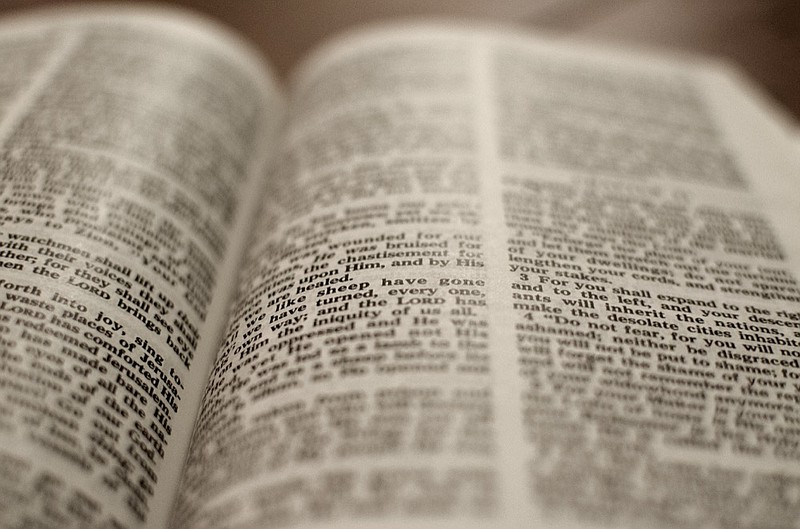Chattanooga faith leaders and community members are among those speaking out against Christian nationalism, an ideology they say is dangerous and damaging to the nation.
At least 23 people in the Chattanooga area are among the thousands who signed the "Christians Against Christian Nationalism" statement organized by the Baptist Joint Committee for Religious Liberty.
"[Christian nationalism] often overlaps with and provides cover for white supremacy and racial subjugation," the statement reads. "We reject this damaging political ideology and invite our Christian brothers and sisters to join us in opposing this threat to our faith and to our nation."
Christian nationalism is an ideology that privileges Christianity in creating laws and regulating social life. Proponents of this form of nationalism combine a belief in the superiority of their country with the superiority of their religion.
Amanda Edens grew up in a Southern Baptist home and church, believing an ideology similar to Christian nationalism, she said. There was no room for questioning or other faiths. It was not until she attended college and began reading theology books that she saw problems with her earlier faith life, she said.
"It became very clear that this idea of America is not one that's in the Bible," Edens said. "And if we're truly looking at this godliness and this inspiration through Jesus, it's kind of the antithesis of what I was seeing in church when we celebrated the Fourth of July with flags flying everywhere and 'God Bless America.'"
Edens signed the statement because discussions of religion in political and social settings have become more divisive, she said.
Andrew Whitehead, a Clemson University associate professor who has studied Christian nationalism, said the idea that the country has to be Christian has been around since its founding. Christian nationalism tends to rise during moments in history when America attempts to define itself, such as around the Civil War, during the Cold War or after 9/11, he said.
The view, while always present in America, is again rising in prominence since the 2016 election of Donald Trump, Whitehead said. Trump and members of his administration often draw on Christianity to support their policies, such as when former Attorney General Jeff Sessions cited the Biblical book of Romans to defend the practice of family separation.
Robert Jeffress, leader of First Baptist Church in Dallas and a vocal supporter of Trump, emphasized the need for America to be a Christian nation during a speech at Abba's House in Hixson to celebrate the Fourth of July.
"God's no respecter of people or nations," Jeffress said in July. "Any nation that honors God will be blessed by God and any nation, including the United States of America, that rejects God will be rejected by God."
Promoting Christian nationalism is never about encouraging people to be more religious, Whitehead said.
"The desired ends are always political," he said. "It's about power and maintaining power. It isn't saying, 'We're a Christian nation' to get their followers to be more pious or get them to love their neighbor better, or anything like that. It's to defend Christianity in the public sphere to be able to hold onto or create power and to see Christianity privileged."
Christian leaders and followers must stand up against this ideology to show others white supremacy and racism is not a true expression of Christianity, said the Rev. Brandon Gilvin, senior minister at First Christian Church.
"The more we can untangle those things and be clear about what it means to bear public witness as people of faith for what we're called to be and what the kingdom of God really looks like, the better and clearer we can be about who we are," Gilvin said.
Rondall Reynoso said he has been concerned about the alignment of faith and patriotism for a long time but feels the ideology is now at a high point. The Cleveland resident said the two hurt one another. America is a nation of many religions. Believing everyone has to be Christian is dangerous, he said.
"In the Biblical ethic, there is no 'other,'" Reynoso said. "We're called to love our neighbor, who is essentially everyone. When you conflate that with nationalism, you very much become concerned who the 'other' is, whether they're infringing on your nation, your rights."
Edens also emphasized what she believes is lost with a nationalist focus on religion.
"You lose this big picture of humanity as a whole," she said. "It becomes an 'us' versus 'them' and much more so on the battle parts of the Bible than the Gospel, the good news. I think you lose Jesus in all that."
Contact Wyatt Massey at wmassey@timesfreepress.com or 423-757-6249. Find him on Twitter at @News4Mass.
